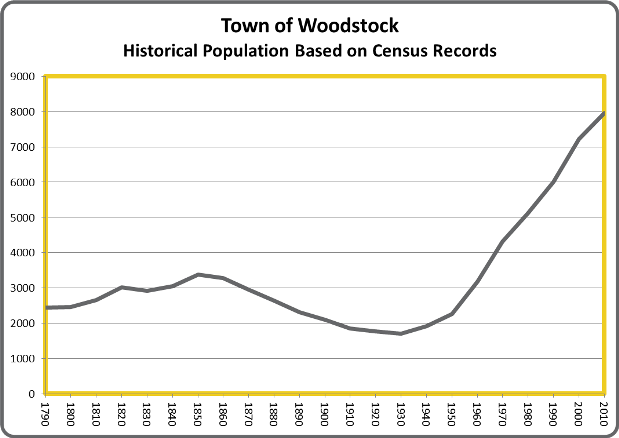Town: Woodstock
Annexed from: Massachusetts, May 1749
Connecticut is currently divided into 169 “towns” with distinct geographical boundaries. These boundaries changed as parishes were set off from larger town-tracts, and the towns we know today may contain incorporated cities, boroughs, or villages. In fact, you might be surprised to learn that the “town” you live in is not actually a town at all. A great example of this is Storrs, which is a village, or census-designated place, within the town of Mansfield.
The independent town has been the foundation of Connecticut government from the arrival of the earliest English settlers. After the American Revolution the first United States Census was conducted in 1790, under the Secretary of State Thomas Jefferson. This decennial (every 10 years) census is mandated by the United States Constitution. The data collected in the first census included the name of the head of the family and it categorized inhabitants as follows: free white males at least 16 years of age, free white males under 16 years of age, free white females, all other free persons (reported by sex and color), and slaves.








